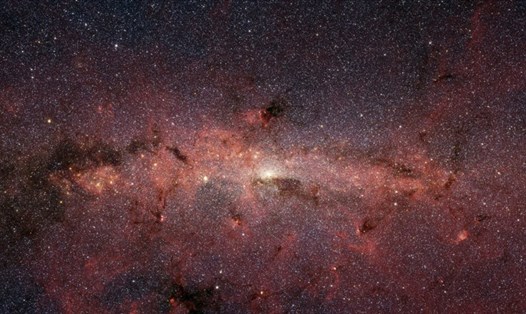RT reported that scientists at the University of Oxford in the UK have rang the alarm about NASA's plan to release location data and other information into space, warning that this effort could cause unintended dangerous consequences, including triggering an attack by aliens.
The problem is mentioned is the project "Beacon in the Galaxy" (Bitg), a data broadcast program of the group of researchers led by NASA with the purpose of welcoming "extraterrestrial intelligence". The American Aerospace Agency wants to signal from the Seti's Allen Period of the Seti Institute in California and China's 500m spherical spherical spherical glasses (FAST). It will include information such as the biochemical composition of life on earth, the location marked over the time of the Solar System in the Milky Way, digitized images of people and invitations to the Earth's feedback.
Anders Sandberg, senior fellow at the Oxford Institute for the Future of Humanity (FHI), argues that such a program could be risky. He said that in the event that an additional civilization is uncertain to receive the message, the reaction may not be just a friendly greeting.
Sandberg told the British Telegraph in an article published on April 17 that searching for life on the planet could be dangerous. Many people refuse to take anything related to this seriously, it is a pity because these are important things, Sandberg said.
Another FHI scientist, Tobyord, suggested that there should be a public discussion before sending signals to planets. Even listening to feedback signals can be dangerous, as they can be used to trap people on Earth. Although these hazards are small, they are not well understood and well managed, he said.
Toby Ord stressed that there is no scientific consensus on the ratio of peaceful and hostile cultures around the galaxies. Since the harmful side can be much greater than the beneficial side, this is not a good situation to take proactive steps to contact the planets, he said.
In the past, weaker signals were sent into space using previous technologies, such as the Arecibo message sent in 2014. Russian scientists have carried out a series of such programs, called Cosmic Calls, in 1999 and 2003. Sandberg theorized that poor planets may have received various messages for all kinds of reasons.
Scientists in the BITG group speculate that an exotic species advanced enough to conduct communication in space may have reached a high level of communication between them and therefore will know the importance of peace and cooperation. Canadian future studies George Dvorsky dismissed the theory as an old problem, saying he thought of multiple scenarios in which evil-minded people on Earth would continue to exist.






